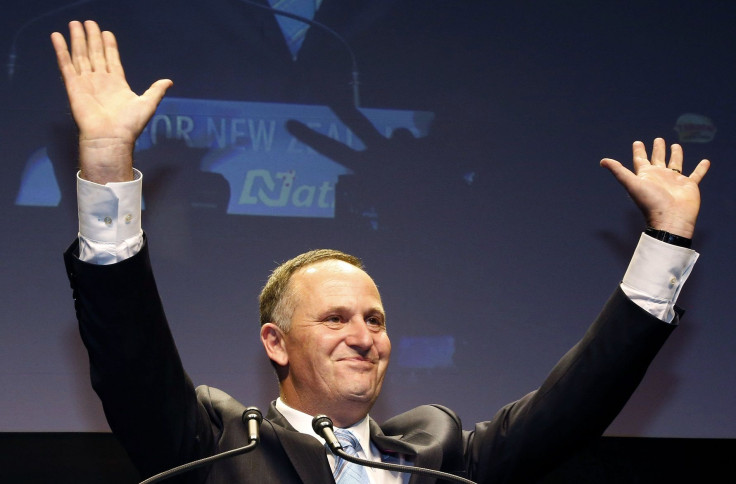New Zealand Prime Minister John Key‘s Japan Visit To Push For Early Conclusion Of TPP Talks: To Sign FTA With South Korea On March 23

New Zealnd's Prime Minister John Key will be visiting Japan on March 24 for two days. He will hold talks with Prime Minister Shinzo Abe and will be accompanied by a delegation led by trade minister Tim Groser.
According to a statement issued by the PM’s office, “New Zealand has strong links with Japan and I am looking forward to seeing Prime Minister Abe again and discussing a wide range of issues including TPP negotiations. New Zealand’s contribution to the international coalition against ISIL and initiatives our two countries are working on together in food, education, sport and defence.”
Trade Agenda
This will be Mr Key’s first visit to Japan since 2012. According to the PM’s spokesperson, the trip will be an opportunity for New Zealand and Japan to deepen economic ties and contribute economic integration in the region. The main agenda of Mr Key’s visit will be to push for an early conclusion of the Trans-Pacific Partnership negotiations to hasten the economic integration within the Asia-Pacific.
Though New Zealand is a small country with a population of 4.5 million, it is world’s largest exporter of dairy products and hopes to make new inroads in the Japanese and U.S. markets through TPP pact. Mr Key, during the visit, will also seek concessions from Japan on beef tariffs that can match with those granted by Japan to Australia.
FTA With Korea
Mr Key had agreed with Japanese counterpart Shinzo Abe over the need to conclude TPP talks early, when the latter visited New Zealand in 2014. But TPP negotiations have been held up over intellectual property rights and other contentious issues.
Meanwhile, on March 23, Mr Key will sign a free trade pact with South Korea, which is the sixth-largest trading partner of New Zealand. However, China is New Zealand’s largest trading partner, with 20 percent of its exports going to China.
Regarding TPP, New Zealand is seeking a higher degree of liberalisation and it is ready for concessions by excluding certain items from tariff reductions or extending the timeline for eliminating tariffs, according to Stephen Hoadley, associate professor of international relations at the University of Auckland.
(For feedback/comments, contact the writer at kalyanaussie@gmail.com)





















